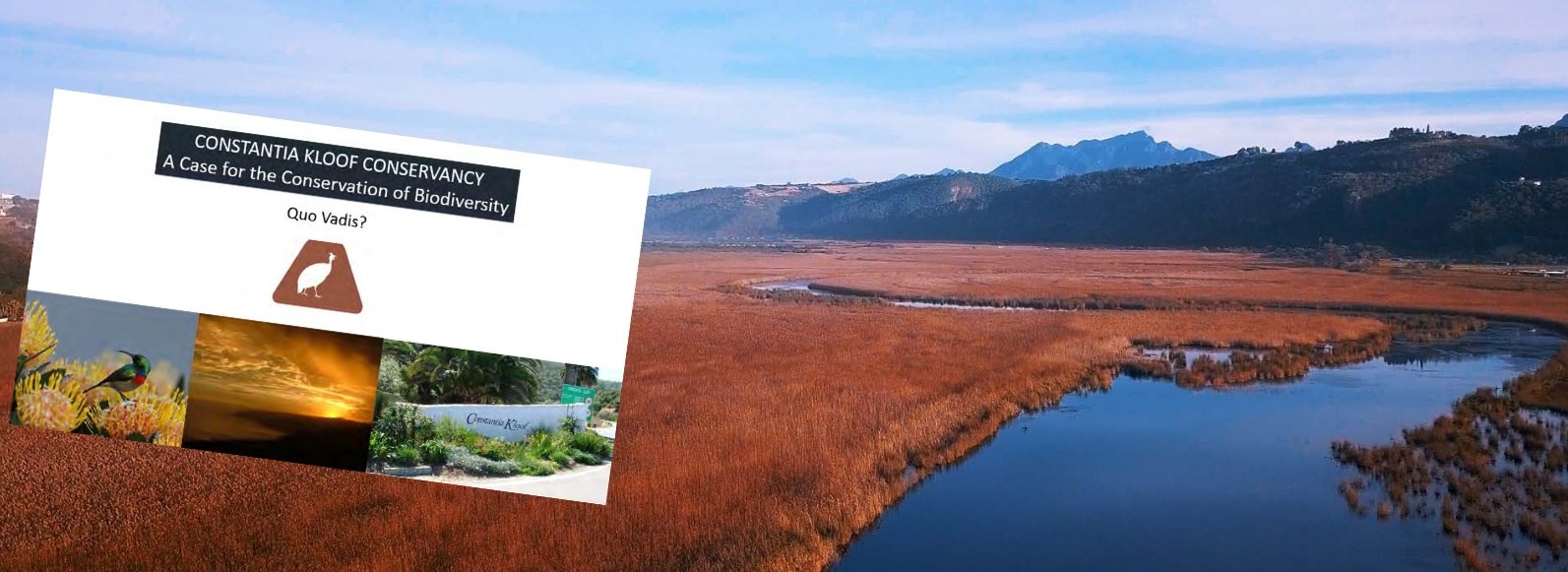GEORGE NEWS - The distinctiveness of the Wilderness environment, as well as the necessity of finding a balance between development and conserving the ecology, was highlighted in a talk at the annual general meeting of the Constantia Kloof Conservancy last week.
Prof Jos Louw, director of the School of Natural Resource Management at Nelson Mandela University (NMU) George Campus, took the audience on a fascinating prehistoric 'tour' outlining the influences that shaped the beautiful landscape as we know it today, with its amazing biodiversity and unique cultural heritage.
He said development has introduced numerous challenges that environmentalists and economists are grappling with in search of a system to live by so that the optimal needs of both humankind and wildlife can be sustained.
Wilderness faces landscape transformation and fragmentation of wildlife habitats, biodiversity loss, soil degradation, the spread of alien invasive plants, and improper fire management.
"These pressures not only threaten our natural and cultural heritage, as well as indigenous knowledge systems, but also place strain on social sustainability in rural and peri-urban areas," said Louw.
He shared data to demonstrate some social challenges in the Garden Route, such as changing some communities' perceptions about conservation and the green economy, as well as addressing the high income disparities, that are exacerbated by the influx of people. People are relocating to this area to escape difficult circumstances, just to find that it is a struggle to find income opportunities here.
The economy is not growing fast enough to support the steep population growth, and 54% of Garden Route residents live below the poverty line.
He called for closer collaboration between scientists and business to aid more effective communication of scientific knowledge to the public, which could encourage more sustainable perceptions and behaviours.
An advantage of this area, and specifically Wilderness, is the exceptionally high levels of innovation and expertise in relevant fields, and this should be exploited in the search for workable, sustainable solutions.
An example is the Kingfisher Badge initiative that was developed by a small group of Wilderness residents to promote 'regenerative tourism'.
It involves charging a levy in the tourism sector - on guesthouses, restaurants and other businesses - and directing the funds towards addressing socio-ecological challenges. It is currently still a conceptual model.
Louw has been living in Wilderness for 29 years and is a founder member of the Constantia Kloof Conservancy.
The AGM was held at Fairy Knowe Hotel on Tuesday 11 March.
 A slide from Prof Jos Louw's presentation.
A slide from Prof Jos Louw's presentation.
‘We bring you the latest Garden Route, Hessequa, Karoo news’
















